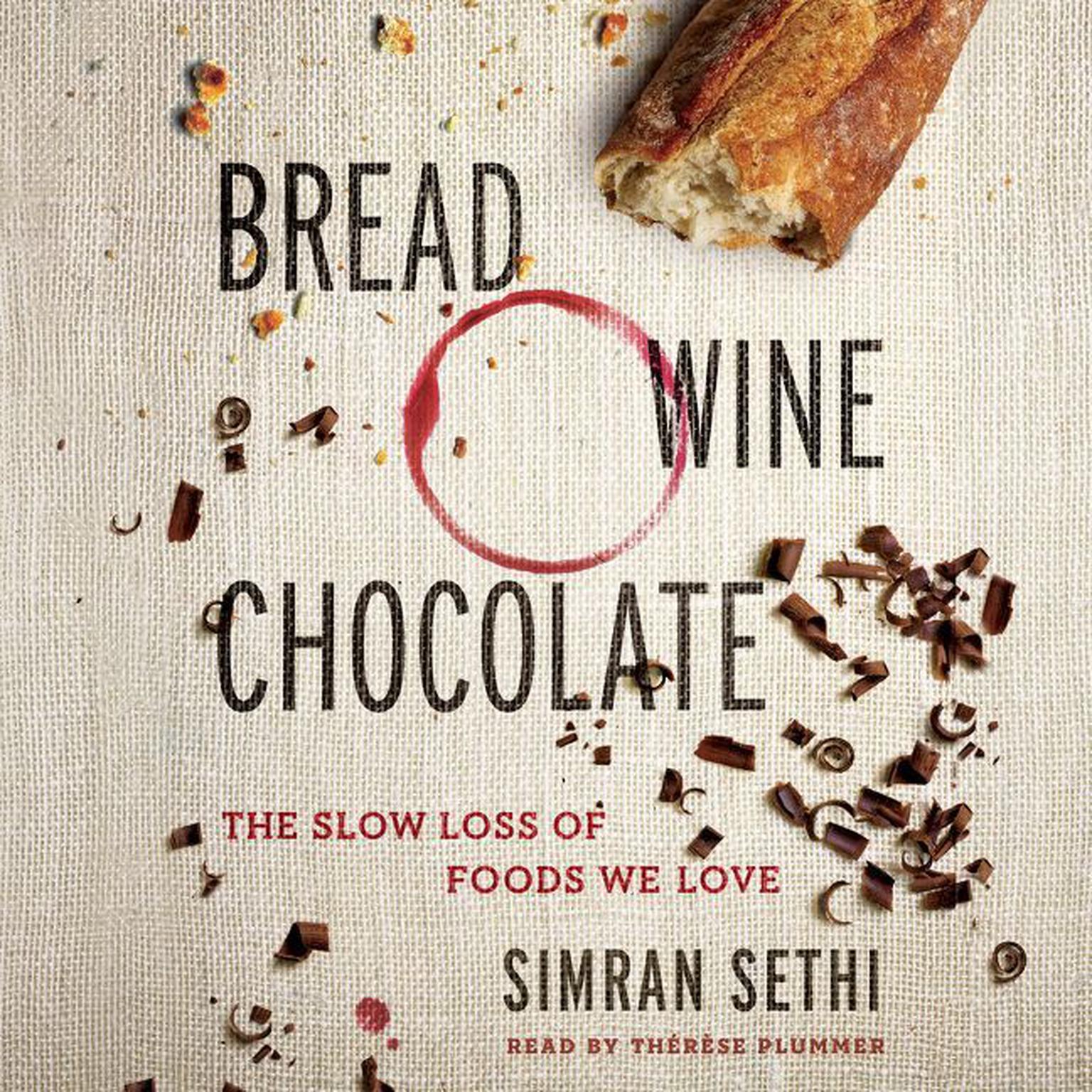 Play Audiobook Sample
Play Audiobook Sample
Bread, Wine, Chocolate: The Slow Loss of Foods We Love Audiobook
 Play Audiobook Sample
Play Audiobook Sample
Quick Stats About this Audiobook
Total Audiobook Chapters:
Longest Chapter Length:
Shortest Chapter Length:
Average Chapter Length:
Audiobooks by this Author:
Publisher Description
Award-winning journalist Simran Sethi explores the history and cultural importance of our most beloved tastes, paying homage to the ingredients that give us daily pleasure, while providing a thoughtful wake-up call to the homogenization that is threatening the diversity of our food supply.
Food is one of the greatest pleasures of human life. Our response to sweet, salty, bitter, or sour is deeply personal, combining our individual biological characteristics, personal preferences, and emotional connections. Bread, Wine, Chocolate illuminates not only what it means to recognize the importance of the foods we love, but also what it means to lose them. Award-winning journalist Simran Sethi reveals how the foods we enjoy are endangered by genetic erosion—a slow and steady loss of diversity in what we grow and eat. In America today, food often looks and tastes the same, whether at a San Francisco farmers market or at a Midwestern potluck. Shockingly, 95% of the world’s calories now come from only thirty species. Though supermarkets seem to be stocked with endless options, the differences between products are superficial, primarily in flavor and brand.
Sethi draws on interviews with scientists, farmers, chefs, vintners, beer brewers, coffee roasters and others with firsthand knowledge of our food to reveal the multiple and interconnected reasons for this loss, and its consequences for our health, traditions, and culture. She travels to Ethiopian coffee forests, British yeast culture labs, and Ecuadoran cocoa plantations collecting fascinating stories that will inspire readers to eat more consciously and purposefully, better understand familiar and new foods, and learn what it takes to save the tastes that connect us with the world around us.
Download and start listening now!
“Therese Plummer’s well-tempered performance complements this book’s important message…Her solemn tone conveys the trend toward standardization…[and her] casual warmth brings out the down-to-earth pleasures of foods…Creating individual voices and accents for various interviewees, Plummer captures the richness of the countries and cultures that embrace the three foods she focuses on…Winner of the AudioFile Earphones Award.”
— AudioFile
Quotes
-
“A passionate plea to save and restore the things most precious about our food—its myriad flavors and its connection with nature.”
— John McQuaid, Pulitzer Prize–winning journalist -
“Sethi’s passionate book on food and biodiversity reminds us how healing food can be. The world is on our plate.”
— Deepak Chopra, New York Times bestselling author -
“A powerful reminder that we can eat in ways that don’t cause damage to the planet or its poorest people—and that can delight us, not just fill us up.”
— Bill McKibben, New York Times bestselling author -
“[Sethi] looks at ways in which monoculture and an increasingly standardized global diet put food systems in peril and leave crops vulnerable to blight and climate change.”
— Wall Street Journal -
“Sethi argues that we are facing one of the most radical shifts in food ever.”
— Smithsonian -
“Full of wonderfully geeky bits of science, including an excellent section on how memory and culture influences our perception of taste. But Sethi’s friendly, welcoming tone makes serious topics digestible and pleasurable.”
— Associated Press
Awards
-
Winner of an AudioFile Earphones Award
Bread, Wine, Chocolate Listener Reviews
Be the first to write a review about this audiobook!
About Simran Sethi
Simran Sethi is a journalist and an associate at the University of Melbourne’s Sustainable Society Institute and the host of the PBS Quest series on science and sustainability. Her work has appeared on NBC Nightly News, PBS, Oprah, MSNBC, the History Channel, and NPR. She was the national environmental correspondent for NBC News, the anchor/writer of Sundance Channel’s first dedicated environmental programming, and the host of the Emmy Award–winning PBS documentary A School in the Woods.


